Evaluation
Evaluating INSERM: an institution that must cultivate its partnerships
Published on
On Thursday 27 May, Hcéres published an evaluation report on the French National Institute for Health and Medical Research (INSERM) for the period 2016-2020 [1]. Drafted by a panel of international experts, this analysis includes recommendations for INSERM’s institutional positioning and strategy, its governance and its various activities.
The only French research body to cover all the medical sciences, health and biology, INSERM is one of Europe's leading institutes in the field. Comparable to the US's National Institutes of Health, INSERM's activities range from fundamental biology to clinical and medical developments to public health.
The panel of experts was chaired by Fiona Watt, Professor at King's College London and Executive President of the Medical Research Council (UK), and vice-chaired by Jacques Samarut, Honorary Professor at Université de Lyon, Hospital Practitioner at Hospices Civils de Lyon, former director of Lyon ENS and of the Life Sciences Department at CNRS (the French National Centre for Scientific Research). It welcomed the positive momentum built during the health crisis and concluded that "INSERM's missions concerning fundamental research and clinical research are perfectly handled". While "the management of INSERM is efficient and well performed", the committee also considered that "annual funding makes programming over five years difficult".
Basing its analysis on the self-evaluation of the institution and interviews with its partners and representatives of steering bodies, the committee highlighted INSERM's "relatively weak impact" on public health and called for an improvement in the "strategic planning with the Ministry for Health in order to develop a long-term strategy" in this field.
In terms of partnerships, the committee praised INSERM's many European and International engagements, calling for it to create a "one-stop-shop" with its partners to participate in European research infrastructures. The committee also encouraged the centre to "develop more interdisciplinary research through a stronger association with other institutions such as CNRS" and to consolidate its links with university hospitals, for example in the management of patient cohorts.
"The transfer of research activities to companies is reflected in a large number of patents and the creation of start-ups in the pharmaceutical and medical fields," the committee noted, also observing that the partnerships are "more effective with SMEs than with large companies". In this regard, the committee invites INSERM and the French government to "clarify the distribution of tasks between SATT [2] and INSERM-Transfert [3]" and proposes "using specific tools to support researchers in their commercial development efforts".
In the "human resources" aspect, the panel suggests "that researchers be encouraged to participate more strongly in teaching and that their participation in collective activities be included in the promotion criteria" and to roll out "actions to attract a greater number of young talents in both fundamental and clinical research".
"The Covid crisis has demonstrated the power of working together on a specific problem and the importance of revolutionary medicines and technologies. This should inspire us," said Gilles Bloch, Chairman and CEO of INSERM, in his letter of observations before concluding that "INSERM is by nature a centre focused on partnerships. We will cultivate our work with other research institutes around the world, and with our French partners in particular, to increase interdisciplinary research and provide the best support to research teams".
Further information
- Download
- Inserm in brief
- Status: a French research organisation placed under the supervision of both the Ministry for Higher Education, Research and Innovation and the Ministry for Solidarity and Health,
- Budget: €966 million, 65% of which comes from public funding,
- Staff: 5,110 civil servants (2,156 researchers, 2,954 engineers, technicians and administrative staff, 3,106 with open-ended or finite term contracts. In addition, 5,242 university staff and university hospital practitioners are affiliated with INSERM units but are employed by their organisation.
- Locations: INSERM is a part of the national research landscape with 261 mixed research units (in partnership with universities and research bodies such as CNRS and university hospitals), 36 service units and 34 clinical investigation centres.
[1] INSERM's previous evaluation was conducted in 2015 by an external international committee.
[2] French companies for accelerating technology transfer
[3] A private INSERM subsidiary with a public service delegation specialised in transferring life science technologies and looking for collaborative funding.



